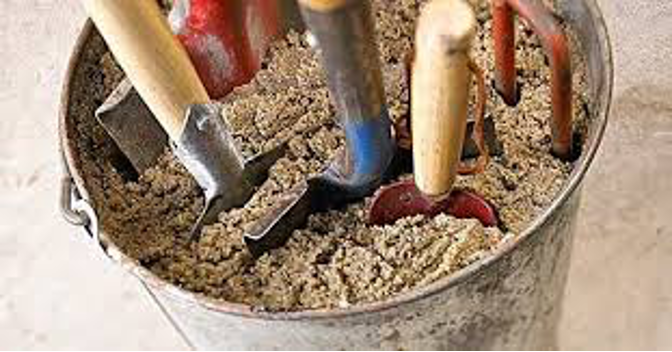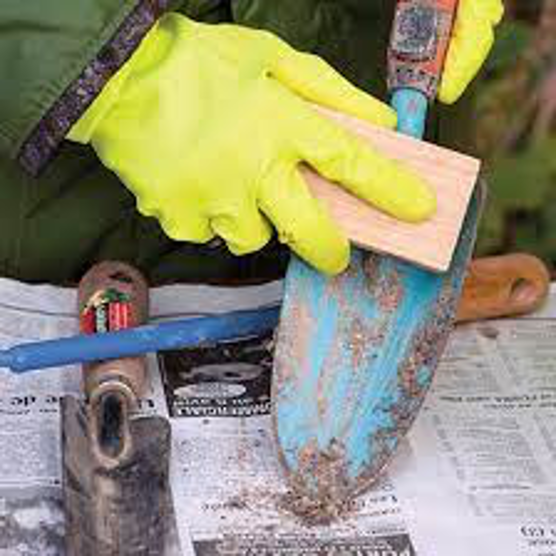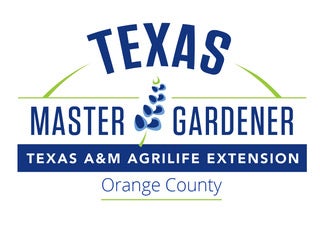Master Gardeners: Garden tool maintenance important part of gardening
Published 12:36 am Saturday, December 18, 2021
|
Getting your Trinity Audio player ready...
|
By John Green
Orange County Master Gardener
Hello gardening friends, our local weathermen and women are predicting a warmer weather pattern for the next several days. If you are like me, making the time to perform maintenance on garden tools doesn’t rank high on my “to do list” but it is a necessary task. As most other gardening chores are now completed: lawn maintenance and fertilizer application, house plants slowly transitioned indoors, flower beds weeded and mulched, and vegetable beds growing green cover crops or heavily mulched. Of course, if you are like me-you planted a couple vegetable beds for Winter harvest and they are diligently producing daikon radish, collard greens, green onions and bok choi. You know that a little winter preparation can really pay off when spring arrives, but don’t forget that your garden tools need a little TLC as well. Here are some tips on how to keep them in great shape while they await the return of warm, sunny days.
December typically is a good time of year to perform basic garden tool maintenance which includes rust removal, tool sharpening, and tool lubrication and proper storage. First let me say, prevention is the best defense to mitigate tool rusting, so cleaning your gardening tools after each use is the best path to take but not always realistic given our hectic schedules. A thorough cleaning using water with liquid detergent is usually adequate to remove soil and debris. Sap or pine residue will require additional scrubbing with a brush. Dry the cleaned tool completely, then lightly coat with mineral oil or spray with WD-40. Or if you chose to perform garden tool cleaning annually rather than after each use here are some tips on how to keep your garden tools in great shape.
- Remove all dried or caked-on soil with a wire brush, rinse and dry thoroughly. (Soak especially dirty tools in water first.)
- To remove rust, make a 50% vinegar solution in a five-gallon plastic bucket. Mix one-gallon white vinegar with one gallon of water. Add rusted tools to the solution and allow rusted areas to remain submerged for 24 hours. Use a steel wool pad or wire brush and scrub the tool using small circular motions until rust is removed.
Note: Wear protective clothing and safety glasses, set up a workstation away from pets or children.
- Wash thoroughly with liquid soap and water and dry completely. Coat metal surfaces with mineral oil or WD-40.
- Sharpen dull tools using a whetstone or file. Secure the garden tool using a clamp or vice before beginning to sharpen the tool. Working at a 45-degree angle, start at the outer edge and slowly move toward the center.
- Wipe a light coating of linseed oil or paste wax on wooden handles to preserve them and prevent cracking or splitting.
- Store hand trowels and other small tools in a bucket of sand soaked in mineral oil to further deter rust and hang rakes and shovels.
- Store water hoses out of the weather by first draining, then coiling them. Repair leaks using a hose repair kit which you can purchase at your local home or garden store. There’s no need to buy a new hose! Even leaky fittings can be replaced with minimal time, money, and effort.
- On your mower, be sure to clean and sharpen the blades (grass clippings rust mower decks. Avoid storing gasoline in your mower over the winter; run the mowers tank out of gasoline or adda gasoline stabilizer in the gas tank.
Note: Remember to practice safety while sharpening tool. Wear protective clothing and safety glasses, set up a area away from pets or children, and always secure the tool you are working on.
Quality gardening tools are expensive. Take good care of them and they will contribute to many years of productive gardening.
For more information or to have your gardening questions answered please contact us:
Orange County TX Master Gardeners
Website: https://txmg.org/orange
Facebook: Orange County Texas Master Gardeners Association.
Orange County Master Gardner Helpline: (409) 882-7010
Email: extension@co.orange.tx.us








